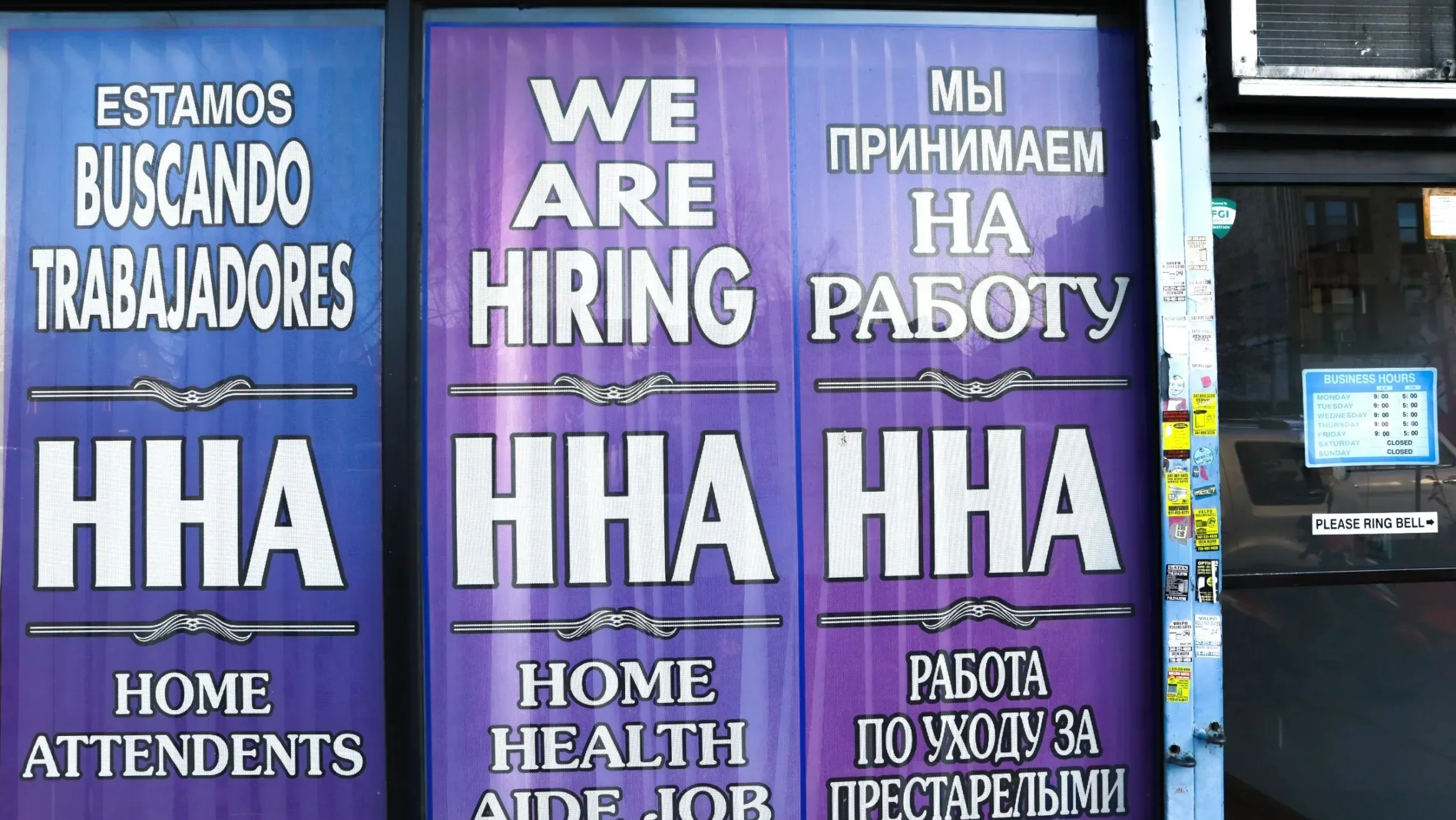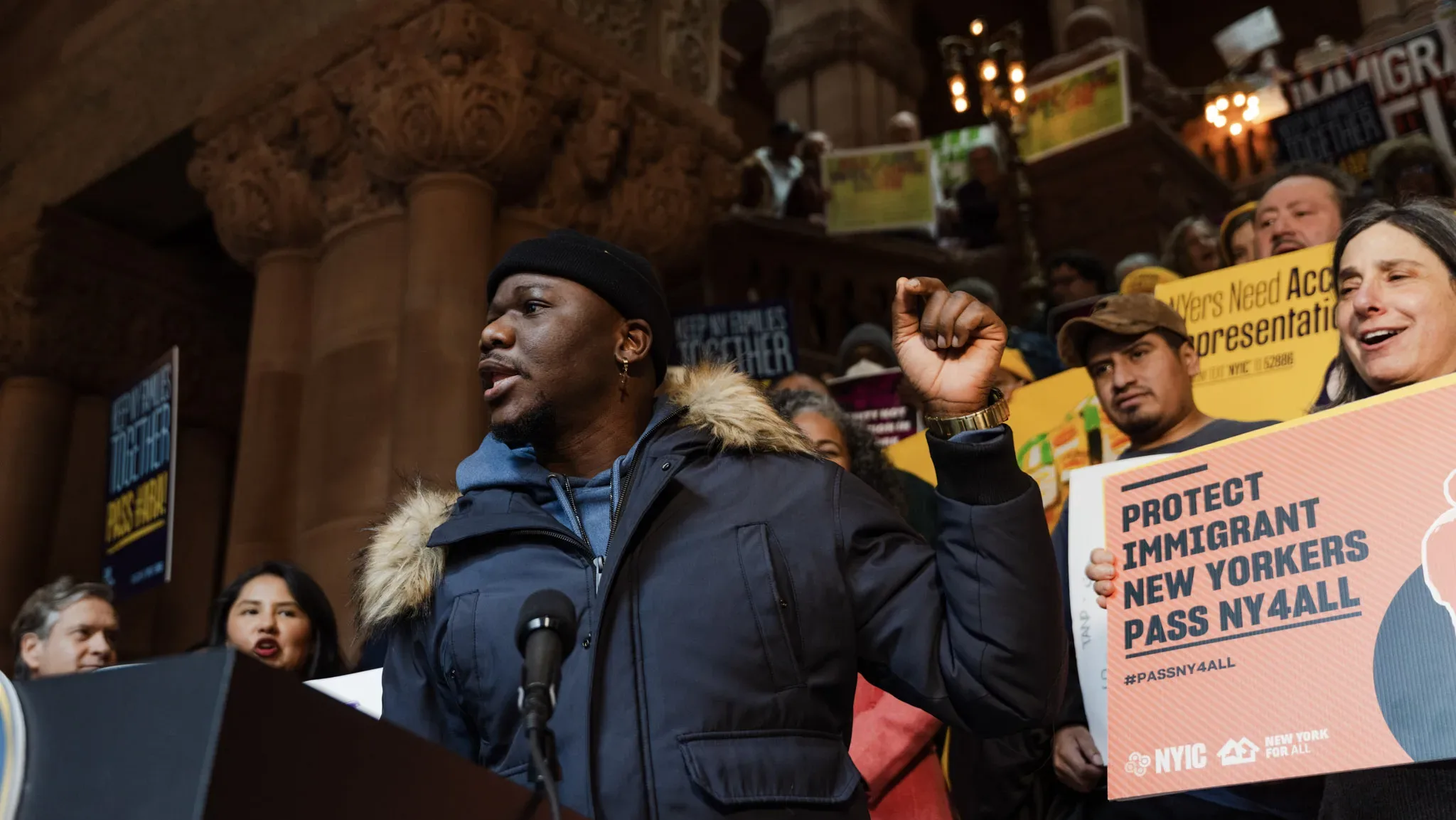It was three months in when Hassan’s employer started to get nervous. Human resources were beginning to get antsy, wanting to know when his work authorization was going to arrive.
“They started asking me, ‘What’s going on?’” Hassan recalled. “They said, ‘At some point, you’re not going to be able to continue working here.’”
Hassan, who asked not to use his real name, has lived in the United States for almost 20 years with temporary protected status (TPS), which was granted to people of Sudanese origin in 1997 because of strife there. Every 18 months to two years, he has renewed his status following extensions granted by the three different administrations. Each time he renewed, he promptly received a new work authorization card.
However, when the Temporary Protected Status program was extended for one final year in 2017, Hassan’s work authorization did not arrive promptly. Like many other Sudanese TPS holders, Hassan was left to wait for months to receive his work authorization, a wait that cost some of them their jobs. Now the community is facing a Nov. 2 deadline that will force them to go home or become undocumented.
Elwaleed Ahmed, a lawyer of Sudanese descent who works out of an office on Brooklyn’s Atlantic Avenue, said he has a dozen Sudanese clients covered by the TPS program. They have all struggled to get their work authorizations renewed, and some are still waiting, he said.
“I have one person that lost his job,” Ahmed said.
United States Citizenship and Immigration Services is responsible for processing renewal applications for those who hold temporary protected status. The status comes with a work authorization that is proven using an Employment Authorization Document, or EAD, a card that resembles a driver’s license.
This authorization is renewed along with temporary protected status. The problem emerged as the deadline approached for the expiration of the TPS designation for Sudan on Nov. 2, 2017. The government announced that it would no longer designate Sudan for TPS, and gave one additional year to allow for recipients to transition to a different status.
Hassan, Ahmed’s clients, and hundreds of other Sudanese TPS holders applied to renew their status a month before the Nov. 2, 2017 expiration. USCIS states TPS holders can work legally in the U.S. for 180 days after their work authorization expired, to allow time for a new one to arrive.
According to Hassan, many employers were not interested in the fact that some still had the right to work because they lacked the Employment Authorization Document.
“USCIS is committed to processing EAD applications in the most expedient manner,” said Katie Tichacek, a public affairs officer for USCIS in New York and Northern New Jersey. She referred applicants to the agency’s online resources to gain information about their status.
Temporary Protected Status itself was created in Congress in 1990 to permit immigrants to remain when they are temporarily unable to return home to countries in turmoil as a result of armed conflict, famine or natural disaster. Each year, the government decides whether to renew this status for the respective countries.
Sudan was designated for TPS on Nov. 4, 1997, by Attorney General Janet Reno in light of an ongoing civil war there, and shortly after the United States imposed sanctions on Sudan for being a state sponsor of terrorism. Twenty years later, Sudan has been split in two after an independence vote by South Sudan, but conflict continues in parts of the country. The country as a whole is suffering from a crippled economy.
Last year, Acting Homeland Security Secretary Elaine Duke ended Sudan’s TPS designation effective Nov. 2, 2018, on grounds that conditions in the country “no longer support its designation.”
The Trump administration also terminated TPS designations for El Salvador, Haití, Honduras, Nepal
and Nicaragua. There are approximately 313,950 people from those countries living on TPS in the United States, with the majority (195,000) coming from El Salvador, according to the National Immigration Forum.
According to the Mayor’s Office of Immigration Affairs, there are 15,000 New Yorkers who have temporary protected status.
Sudan is among the smallest groups (there are 450 Sudanese TPS holders nationally), but it is the longest standing of the countries that had their status ended. Many Sudanese TPS holders have lived in the U.S. for two decades and are now faced with the option of going back to a country they have no ties to.
Hassan, for instance, said he has never lived in Sudan. He came to the United States in 1997, aged 18, and fresh out of high school in Saudi Arabia, where he was born. He made an unsuccessful application for asylum but was granted temporary protected status.
He studied network engineering but landed a job as a project manager at a printing and design company, where he mostly liaises with architects and engineers. The prospect of moving back to Sudan is a daunting one.
“I’ve never been out of the country” after migrating to the United States, Hassan said. “Half my life was spent in the U.S.”
Omar Mohamed Mussad, a Sudanese immigrant, arrived at the Canada-U.S. border in 2000 to apply for asylum. He was released after 25 days in a detention center in Buffalo and fought for his asylum application for years while remaining in the U.S. on temporary protected status.
After spending thousands of dollars on an immigration lawyer, Mussad gave up on his asylum application in 2009 and has just been living in the U.S. on temporary protected status since. “After that, I said, ‘I’m not talking to any more lawyers,’” he said. “I’ve lived on TPS until this guy Trump came along.”
Mussad now lives in Brooklyn and drives a yellow cab, which has sustained him well, despite a brief threat from Uber. His work authorization was also delayed for many months, but, since he’s self-employed, it was less a concern. Now he’s also contemplating what he will do next when the status expires in November.
African Communities Together, which advocates for African immigrants, assisted both Hassan and Mussad in securing legal assistance. Sadatu Mamah-Trawill, a community organizer at African Communities Together, said the decision to end temporary status for Sudanese immigrants will have ripple effects throughout the community.
“For 20 years, people have built lives here,” Mamah-Trawill told Documented. “People have had children who are in high school and college.”
She added: “How can any parent in their right mind get up and leave their children behind?”
Hassan and Musaad have also placed their hopes in ongoing litigation at federal court in San Francisco. The class-action lawsuit filed in March argues that the revocation of temporary protected status was motivated by bigotry.
The case was filed by nine TPS holders and six of their U.S. citizen children. It stems in part from reports that President Donald Trump referred to Haiti, El Salvador, and African nations as “shithole countries” during an Oval Office meeting in which the Temporary Protected Status program was being discussed, and he suggested the U.S. should bring in more immigrants from Norway instead.
Among other things, the plaintiffs argue that the Department of Homeland Security ended temporary protected status for Haiti, El Salvador, Sudan
and Nicaragua, not for the policy reasons presented, but because of Trump’s disdain for non-white immigrants. Therefore, it would be a violation of their constitutional right to equal protection.
The plaintiffs contend that the administration has “racist motivation to forcibly remove non-white immigrants from the United States and there’s significant evidence of that,” said Emi MacLean, an attorney with the National Day Laborer Organizing Network and co-counsel for the plaintiffs.
The Department of Homeland Security declined to comment.
Judge Edward M. Chen, an Obama appointee, rejected a motion to dismiss by the government after he found that the “Plaintiffs have plausibly pled that President Trump‘s racial and national-origin/ethnic animus was a motivating factor in DHS‘s TPS termination decisions.”
Last week, 110 members of Congress called on the Trump administration to reinstate temporary protected status for the Central American countries. They asserted that internal documents showed the State Department ignored important information in recommending that the status is terminated.
As for Hassan, his work card finally arrived in June. Luckily his employers stuck by him and he was able to keep his job. But his future remains in doubt.
“Nothing is certain,” he said. “We’ll just have to wait and see.”














